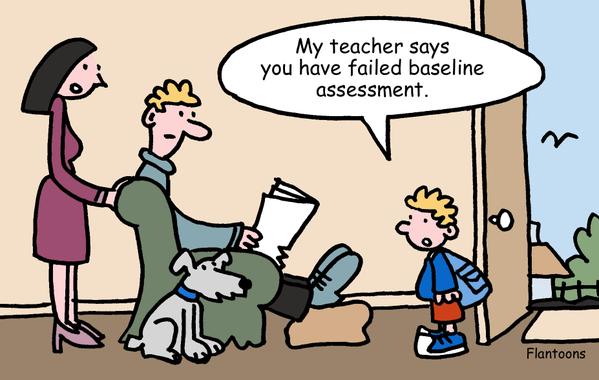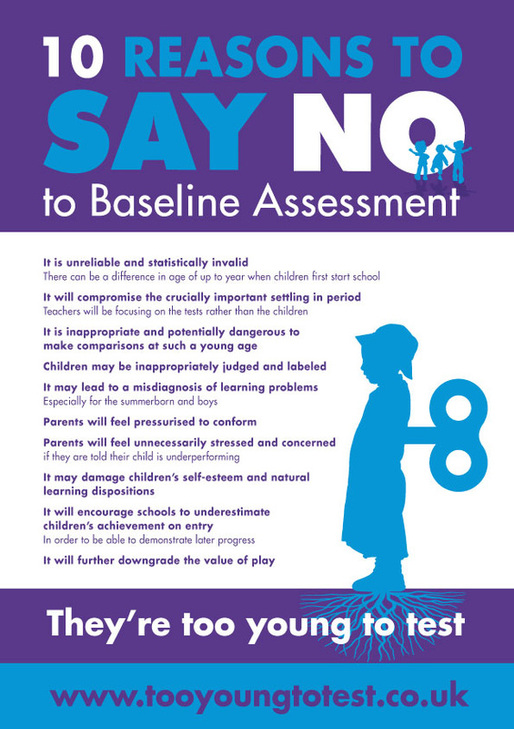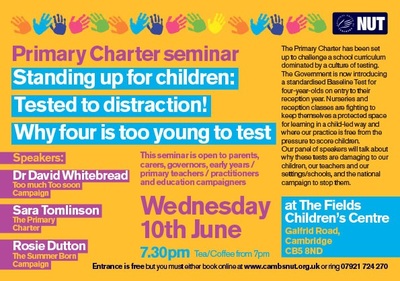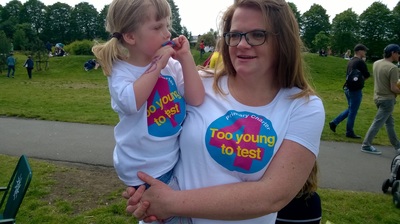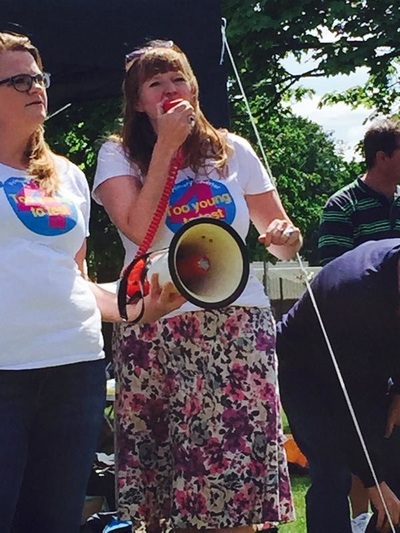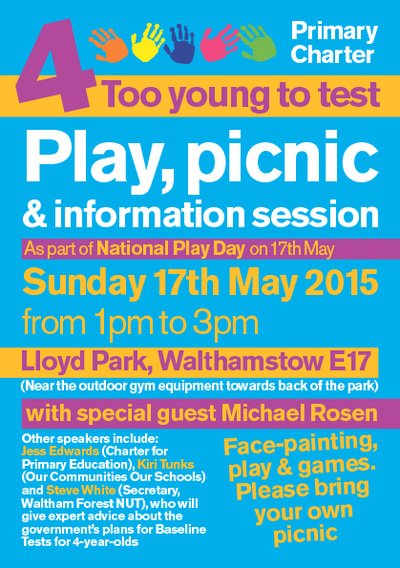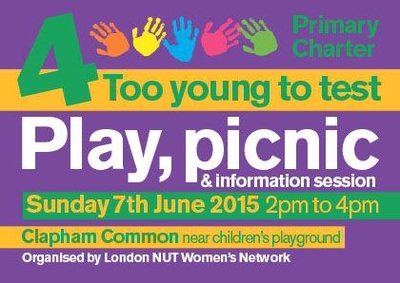WHY IT'S BETTER
|
Click here to see the Baseline Assessment FAQs
There are many reasons why the new Baseline Assessment is unacceptable. For example it's already been tried out in England and Wales and both times failed. In Wales one of the key reasons was that parents increasingly realised that it was their parenting skills that were being measured, rather than the development of their children. Removing the EYFS profile will also mean that all the longitudinal data that has been collected so far will then become redundant - a tragic loss of time and effort by all those involved in ensuring that the profiles were appropriately child centred and the data relevant to supporting ongoing child development. But, most importantly, it is focused on school accountability, rather than the best interests of the child and this sets a dangerous precedent. Commercial providers have been introduced, who have an investment in ensuring that schools sign up to their services; in order to show the desired progress schools will be advantaged by under-rating on-entry levels of children's development; and schools will then be under continuous pressure to put the achievement of performance indicators above the developmental needs of the child. Commercialisation of the process
The contract value was shown as £2-£4.2 million The Department for Education (DfE) accredited six schemes which meet their criteria, which include requirements to provide a single numerical score with the majority of the content related to communication, language and literacy and mathematics. The DfE also required that the final score is not age-adjusted. For the 2015-16 academic year, the Government will pay for the basic costs of approved baselines for local-authority maintained schools, academies and free schools. Schools will be reimbursed directly for the basic cost, but from September 2016 this will then be included in the school budget. The assessment must be completed within the first six weeks of reception; in fact, some of the schemes specify completion within the first two weeks. Most of the approved schemes are scripted tests, with children answering a narrow range of closed questions. Some rely exclusively on the use of laptops or tablets, which will not be equally familiar to every child. Some of the schemes also advertise as a bonus that they can be repeated at the end of the reception year in order to demonstrate progress. See the government's criteria See what schools have been told See the full TATYC/Early Education Analysis See Dr Pam Jarvis's article See the IJCDSE research article |
But isn't the most popular Early Excellence model observation-based?
See our review of the Early Excellence Model
See the NUT's view on Early Excellence
The EE model is the most similar in approach to the existing EYFS Profile, but the latter is carefully built up over time, rather than being produced within the vital settling-in period. We question in what way this is a more advantageous use of teacher's time and also question whether the huge amount of public money that is being spent on this that could have been better allocated to finding ways of increasing the quality of ECE. On top of this we challenge the government's position that the reason for the introduction is to improve school accountability, rather than to help nurture children's ongoing development.
If the primary aim is to identify children who need extra support, we believe that all these assessments are also measuring the wrong things. There are several research studies showing that early numeracy and literacy do not predict long-term school achievement, or emotional well-being. These are predicted by early self-regulation (e.g. the ability to maintain attention) and by early play experience and playfulness. So, this is what we should be assessing and supporting in ECE, leaving literacy and numeracy until children are 6/7 years of age.
See our review of the Early Excellence Model
See the NUT's view on Early Excellence
The EE model is the most similar in approach to the existing EYFS Profile, but the latter is carefully built up over time, rather than being produced within the vital settling-in period. We question in what way this is a more advantageous use of teacher's time and also question whether the huge amount of public money that is being spent on this that could have been better allocated to finding ways of increasing the quality of ECE. On top of this we challenge the government's position that the reason for the introduction is to improve school accountability, rather than to help nurture children's ongoing development.
If the primary aim is to identify children who need extra support, we believe that all these assessments are also measuring the wrong things. There are several research studies showing that early numeracy and literacy do not predict long-term school achievement, or emotional well-being. These are predicted by early self-regulation (e.g. the ability to maintain attention) and by early play experience and playfulness. So, this is what we should be assessing and supporting in ECE, leaving literacy and numeracy until children are 6/7 years of age.
Democratic Consultation Process?
Journalist Warwick Mansell's 31st March blog
"Of 1,063 responses to the DfE’s question, in its July “consultation” as to whether the principles of that paper were right, 57 per cent said no, with only 18 per cent in favour. Yet, as argued above, I think the thrust of the proposals are unchanged.
The July paper also said the DfE was “seeking views on the most appropriate point for baseline assessment”, having tentatively suggested its use in reception. Some 51 per cent replied that there should not be a baseline check at the start of reception, Thursday’s paper conceded, against 34 per cent in favour, with the detailed concerns of expert groups not even mentioned. Yet it is happening.
Similarly, 73 per cent of consultees came out against allowing schools to choose from commercially available baseline assessments, compared to 12 per cent in favour. Again, it is happening.
And 68 per cent said that if the baseline assessments were to happen, they should not be made optional, against 19 per cent who said they should. They are being made optional."
Journalist Warwick Mansell's 31st March blog
"Of 1,063 responses to the DfE’s question, in its July “consultation” as to whether the principles of that paper were right, 57 per cent said no, with only 18 per cent in favour. Yet, as argued above, I think the thrust of the proposals are unchanged.
The July paper also said the DfE was “seeking views on the most appropriate point for baseline assessment”, having tentatively suggested its use in reception. Some 51 per cent replied that there should not be a baseline check at the start of reception, Thursday’s paper conceded, against 34 per cent in favour, with the detailed concerns of expert groups not even mentioned. Yet it is happening.
Similarly, 73 per cent of consultees came out against allowing schools to choose from commercially available baseline assessments, compared to 12 per cent in favour. Again, it is happening.
And 68 per cent said that if the baseline assessments were to happen, they should not be made optional, against 19 per cent who said they should. They are being made optional."
